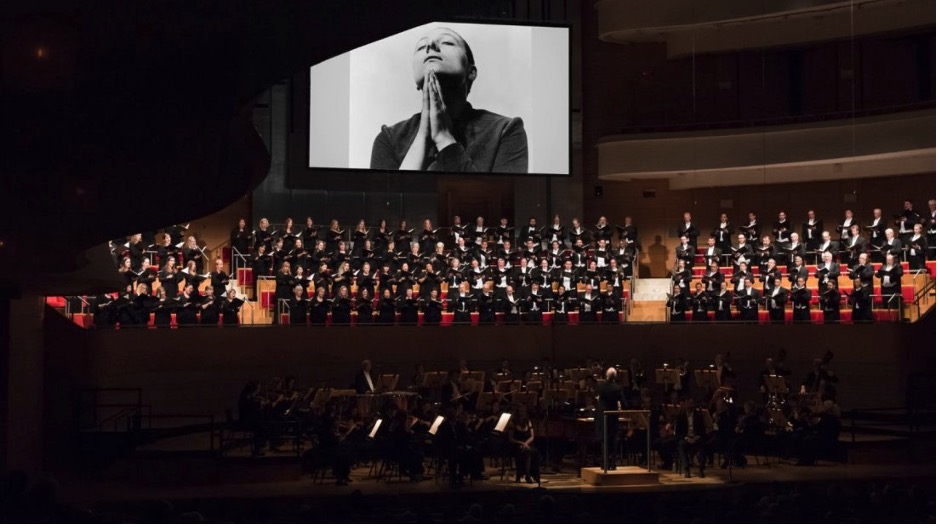Comments
GELFAND’S WORLD - The Passion of Joan of Arc is a film that leaves you stunned. Made in 1928 in the silent era and directed by Carl Theodor Dreyer, it is now considered one of the greatest films ever made. I think it is the most perfectly made film I have ever seen. But there is more, because it will be presented to southern California audiences in what is an old art form evolved into a new art form.
You can find information about the October 7 performance here.
Film was never made to be seen in silence. Before The Jazz Singer and the sound film revolution, movies were shown with musical accompaniment. In the smallest towns, a piano player would perform, starting with news reels and short subjects, and continuing through an entire feature film. And then do it again.
At the middle level, accomplished organists would extemporize as they watched what was happening on screen.
In larger cities with movie palaces, entire orchestras would perform. Studios would often include a few pages of musical themes as clues for the conductors.
All in all, it was something akin to the effects and feelings one might get at the grand opera or perhaps nowadays with the best new movies.
In this modern era, choral groups have taken a shot at film accompaniment. A few years ago, the Los Angeles Master Chorale sang and recited to a newly written score for Murnau's Sunrise.
On October 7, the Pacific Chorale will perform music to the Dreyer masterpiece. It turns out that Richard Einhorn wrote the score back in the 1990s, and those of you who are sufficiently curious can find a recording on Youtube. The work includes orchestra, chorus, and soloists, so we will get the entire classical musical spectrum applied to this deep and emotionally jarring film.
Joan was born in the early 1400s during the Hundred Years War, at a time when English forces and their French allies controlled parts of northern France. She claimed to be affected by visions, developed a political and military relationship with the heir to the French throne, and participated in battles against the English. She joined in conquests that led to the French heir being crowned as king.
In a later battle, she was captured by French troops who were allied with the English. She was ransomed to the English and put on trial for heresy. In May of 1431, she was burned to death.
There is a surviving transcript of the trial, which Dreyer made use of in scripting his film. The performance by actress Renee Maria Falconetti has been claimed to be "the finest performance ever recorded on film" by none other than Pauline Kael. I should add that there is nothing histrionic about her performance. It is true to a character who believes in herself and her divine mission, but fears and regrets her own death.
The trial involves attempts by the clergy to convince Joan to recant and, during her testimony, to catch her in theological traps. At the time, the fact of her wearing men's clothes was treated as a serious matter, as was her independent nature.
Modern audiences, scholars, and defenders of women's rights see her as the closest thing to a feminist that the fifteenth century could create.

The film includes a graphic scene where Joan is burned to death for her heresy. The scene is disturbing. But the more sensitive among us will also realize that the ending of The Passion of Joan of Arc is also among the best realized scenes in all of cinematic art of any century.
I won't attempt to delve into the themes and twists of the film itself, but the portrait of Joan comes across in a particularly direct way, leading to one possible answer to this question: What is it like to know a saint? And after getting to know her, to watch that person die horribly before your eyes?
Was Joan an early day battler for women's rights, or was she just somebody who heard voices and didn't know to do anything other than to obey them?
And in so doing, for whatever reason, she was part of the earlier revolution that allowed France to become an independent nation.
(Bob Gelfand writes on science, culture, and politics for CityWatch. He can be reached at [email protected].)





